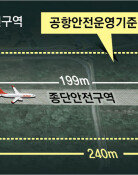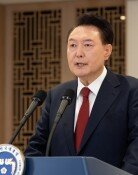Over 100 businessmen to accompany Pres. Moon’s visit to India
Over 100 businessmen to accompany Pres. Moon’s visit to India
Posted July. 06, 2018 07:34,
Updated July. 06, 2018 07:34
The Korea Chamber of Commerce and Industry announced Thursday economic delegation that will accompany President Moon Jae-in’s visit to India from Sunday to Wednesday. It is an urgently formed immense delegation including 100 people along with 14 conglomerates. CEOs of affiliates of major groups were also included. Although not mentioned in the economic delegation list, Samsung Vice Chairman Lee Jae-yong is expected to introduce its local factories in India to Moon.
This is not the first time a large-scale economic delegation was formed in President Moon’s visit to a foreign country. During his visit to China in last December, some 300 businessmen accompanied Moon. Korea and China, Korea’s largest trading partner, however, had a special period when efforts were made to recover sore relationship due to issues concerning THAAD. It is very irregular for Korea to send a delegation of this scale to India, which is not a major business partner of Korea. There are 30 more people in Mr. Moon’s delegation compared to former President Park Geun-hye’s delegation 2014.
A large-scale economic delegation is necessary due to the importance of India, which is an alternative in “Post-China era” and the core country of the new South policy. When considering the fact that it is difficult to organize a delegation without prior adjustment between the financial sector and the presidential office Cheong Wa Dae, however, it can be interpreted that the relationship between the financial sector and Cheong Wa Dae, which became rather distant lately, is now showing signs of improvement.
The financial sector had to endure the cold eyes of Cheong Wa Dae for being involved in the monopoly of government affairs at the former administration. Even with the increase in corporate income tax, shifting temporary workers into regular workers, and other policies that suffocate corporations, businesses had a difficult time expressing their opinions. The Korea Employers’ Federation, which criticized the government’s policy was condemned by the president that they are the “very people who create social polarization.” It will be fortunate if businessmen, who were shrunk down, will be able to pioneer future markets by accompanying President Moon with economic diplomacy. It will all the more be welcomed if this visit will be an opportunity for Cheong Wa Dae, which was indifferent toward companies, to change its attitude.
The challenges companies face in industrial sites are still tough. We should not overlook the comments by Chairman Park Yong-maan of the Korea Chamber of Commerce and Industry that “We proposed regulatory reform for almost forty times but nothing has changed.” The recent oppression posed on conglomerates by the Fair Trade Commission may damage the competitiveness of companies. Immediately after the local elections in June, President Moon emphasized that it is important to resolve issues companies face by listening to them and communicating with them often. The problem is that this is just the opinion of the president himself. Policies of the government and the presidential office need to shift to those than can substantially aid companies.






